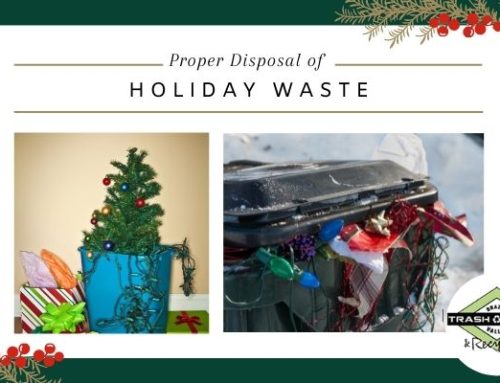The Benefits of Composting for Apartment Dwellers
Composting is a simple yet impactful way to reduce waste and contribute to a more sustainable environment. Many people believe that composting is only feasible for those with large backyards, but even apartment dwellers can reap the benefits of this eco-friendly practice. This guide will show you how to start and maintain a composting system in your apartment, no matter how limited your space may be.
Why Compost?
Reduce Waste
One of the primary benefits of composting is reducing the amount of waste sent to landfills. Food scraps and organic waste can make up a significant portion of household garbage. By composting these materials, you can significantly cut down on your overall waste output.
Create Nutrient-Rich Soil
Composting transforms organic waste into nutrient-rich soil, also known as “black gold.” This compost can be used to enrich the soil of potted plants, window gardens, or even shared community gardens. It provides essential nutrients that help plants grow healthier and more robust.
Lower Your Carbon Footprint
When organic waste decomposes in landfills, it releases methane, a potent greenhouse gas. Composting at home helps reduce methane emissions, thus lowering your overall carbon footprint.
How to Start Composting in an Apartment
Choose the Right Composting Method
Several composting methods are suitable for apartment living:
- Vermicomposting: This method uses worms to break down organic waste. Worm bins can be kept indoors and are relatively odorless when maintained properly.
- Bokashi Composting: A fermentation process that can handle all types of food waste, including meat and dairy. It involves using a special bran to ferment the waste in a sealed container.
- Electric Composters: These compact devices can speed up the composting process and are designed for indoor use.
Setting Up Your Composting System
- Select a Container: Choose a container that fits your space and composting method. For vermicomposting, a ventilated bin with bedding material is ideal. For Bokashi, you’ll need an airtight bucket with a spigot.
- Find a Location: Place your composting system in a convenient location, such as under the sink, on a balcony, or in a pantry. Ensure it’s easily accessible for adding waste and maintaining the system.
- Start Composting: Begin by adding food scraps and organic waste to your chosen composting method. Avoid adding non-compostable items like plastic, glass, and certain types of paper.
Maintaining Your Compost
- Balance Green and Brown Materials: For vermicomposting, balance green materials (food scraps) with brown materials (shredded paper or cardboard) to maintain the right moisture and aeration levels.
- Monitor and Adjust: Check your compost regularly to ensure it’s decomposing correctly. Add water if it’s too dry, or more brown materials if it’s too wet.
- Harvesting Compost: Once your compost is ready, it should have a dark, crumbly texture and earthy smell. Use it to enrich the soil of your indoor plants or share it with a local community garden.
Final Thoughts
Composting in an apartment may seem challenging at first, but with the right approach and tools, it’s entirely feasible. By composting, you’ll reduce your waste, lower your carbon footprint, and create nutrient-rich soil to nourish your plants. Embrace this sustainable practice and contribute to a greener future, even from the comfort of your apartment.
For more eco-friendly tips and services, visit BV Trash Valet & Recycling’s website. Happy composting!
Share This Story, Choose Your Platform!
The Benefits of Composting for Apartment Dwellers
Composting is a simple yet impactful way to reduce waste and contribute to a more sustainable environment. Many people believe that composting is only feasible for those with large backyards, but even apartment dwellers can reap the benefits of this eco-friendly practice. This guide will show you how to start and maintain a composting system in your apartment, no matter how limited your space may be.
Why Compost?
Reduce Waste
One of the primary benefits of composting is reducing the amount of waste sent to landfills. Food scraps and organic waste can make up a significant portion of household garbage. By composting these materials, you can significantly cut down on your overall waste output.
Create Nutrient-Rich Soil
Composting transforms organic waste into nutrient-rich soil, also known as “black gold.” This compost can be used to enrich the soil of potted plants, window gardens, or even shared community gardens. It provides essential nutrients that help plants grow healthier and more robust.
Lower Your Carbon Footprint
When organic waste decomposes in landfills, it releases methane, a potent greenhouse gas. Composting at home helps reduce methane emissions, thus lowering your overall carbon footprint.
How to Start Composting in an Apartment
Choose the Right Composting Method
Several composting methods are suitable for apartment living:
- Vermicomposting: This method uses worms to break down organic waste. Worm bins can be kept indoors and are relatively odorless when maintained properly.
- Bokashi Composting: A fermentation process that can handle all types of food waste, including meat and dairy. It involves using a special bran to ferment the waste in a sealed container.
- Electric Composters: These compact devices can speed up the composting process and are designed for indoor use.
Setting Up Your Composting System
- Select a Container: Choose a container that fits your space and composting method. For vermicomposting, a ventilated bin with bedding material is ideal. For Bokashi, you’ll need an airtight bucket with a spigot.
- Find a Location: Place your composting system in a convenient location, such as under the sink, on a balcony, or in a pantry. Ensure it’s easily accessible for adding waste and maintaining the system.
- Start Composting: Begin by adding food scraps and organic waste to your chosen composting method. Avoid adding non-compostable items like plastic, glass, and certain types of paper.
Maintaining Your Compost
- Balance Green and Brown Materials: For vermicomposting, balance green materials (food scraps) with brown materials (shredded paper or cardboard) to maintain the right moisture and aeration levels.
- Monitor and Adjust: Check your compost regularly to ensure it’s decomposing correctly. Add water if it’s too dry, or more brown materials if it’s too wet.
- Harvesting Compost: Once your compost is ready, it should have a dark, crumbly texture and earthy smell. Use it to enrich the soil of your indoor plants or share it with a local community garden.
Final Thoughts
Composting in an apartment may seem challenging at first, but with the right approach and tools, it’s entirely feasible. By composting, you’ll reduce your waste, lower your carbon footprint, and create nutrient-rich soil to nourish your plants. Embrace this sustainable practice and contribute to a greener future, even from the comfort of your apartment.
For more eco-friendly tips and services, visit BV Trash Valet & Recycling’s website. Happy composting!




